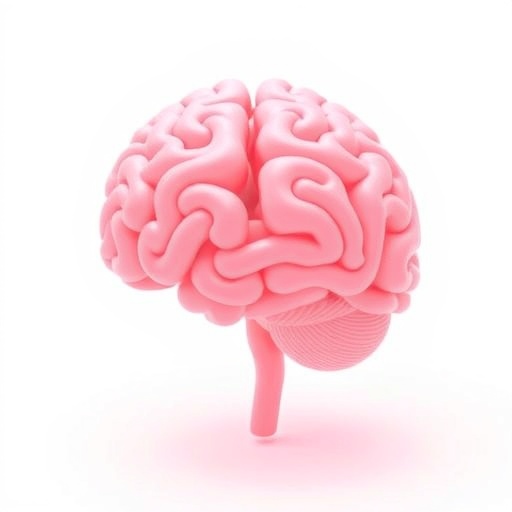Research into human brain organoids (HBOs) has been advancing rapidly, promising unprecedented insights into neurodevelopmental processes and neurological diseases. However, this emerging field also challenges established ethical frameworks and biobank consent practices. A recent study led by researchers from Hiroshima University, published in the journal Frontiers in Genetics, reveals that the Japanese public overwhelmingly rejects the current standard of broad consent for cell donation in HBO research. This finding signals a critical need to rethink the consent model for ethically sensitive biomedical research.
Human brain organoids are three-dimensional, self-organizing structures generated from donor-derived stem cells that recapitulate key aspects of human brain development. These miniaturized brain models allow scientists to investigate complex brain functions, disease mechanisms, and potential therapeutic strategies in vitro. Although their utility in research is revolutionary, HBOs raise profound ethical questions, particularly around the potential future capabilities of these organoids.
Professor Tsutomu Sawai, a distinguished contributor to the study, highlights the central ethical dilemma: as HBOs become more sophisticated, there is increasing speculation that they could acquire capacities for consciousness or sentience. This prospect introduces unprecedented moral considerations, as donors who consented to cell donation under traditional broad consent frameworks likely did not foresee such applications of their biological material.
Currently, broad consent is the prevalent model for biobanking and tissue donation, wherein donors agree to the use of their cells across a wide range of future research projects, many of which may be undefined at the time of consent. This system is designed to facilitate scientific progress without the need for repeated consent, but its limitations become apparent when confronting novel and ethically charged research areas such as HBOs.
To gauge public opinion, Sawai and colleagues conducted a comprehensive survey involving over 300 Japanese residents, assessing their willingness to donate cells for HBO research under the broad consent paradigm. Intriguingly, more than 90% of participants had no prior knowledge of brain organoids. Despite an informative briefing provided during the survey, only 15% expressed willingness to offer broad consent for such use, while roughly 36% flatly refused, and an additional 37% indicated conditional willingness depending on the research purpose and ethical safeguards.
This data underscores a significant mistrust or discomfort with broad consent in the context of morally complex research. The public’s hesitation appears driven by a desire for transparency regarding the scientific aims, the potential benefits, and assurances that ethical boundaries will be respected. Moreover, trust in the researchers and institutions handling their biological materials emerged as a pivotal factor influencing willingness to donate.
The findings resonate with qualitative studies from Europe and North America, suggesting that concerns over consent models for HBO-related research transcend cultural boundaries, marking a global challenge for current biobank practices. Moral sensitivity surrounding consciousness potential in organoids appears universally significant and demands careful attention from the scientific community.
Given these insights, the authors advocate for transitioning toward a project-specific consent framework for cell donation in ethically sensitive research domains. Unlike broad consent, project-specific consent involves informing donors about the explicit aims and ethical context of each study before obtaining consent. This approach not only respects donor autonomy but also aligns with evolving societal expectations for participatory decision-making in biomedical research.
Associate Professor Masanori Kataoka emphasizes the empowering nature of project-specific consent. By ensuring donors make informed decisions based on detailed knowledge of the research, this model honors individual moral perspectives, which may foster greater public trust and increase willingness to participate. Such trust is essential for sustaining the critical donor pools required to propel HBO research and other sensitive biomedical fields forward.
This paradigm shift also presents practical and logistical challenges for research institutions, necessitating enhanced communication efforts, ongoing engagement with donors, and possibly new frameworks for consent management. However, these efforts are vital to reconcile scientific innovation with ethical responsibilities and societal values.
The Hiroshima University study adds a vital empirical dimension to ongoing ethical debates around organoid research, highlighting the pressing need for updated consent practices that can accommodate emerging biotechnologies. As HBO research advances, balancing scientific promise with respect for donor rights and public trust will be paramount.
In sum, the study’s revelations about Japanese attitudes toward cell donation for human brain organoids provide a cautionary tale and roadmap for research institutions worldwide. The broad consent model, once sufficient for many types of biospecimen research, falls short in contexts where research raises deep moral and philosophical questions. Embracing more nuanced, project-specific consent protocols could be key to ensuring ethical integrity and public support in this transformative area of biomedicine.
This research underscores the necessity for the global scientific community to engage in ongoing dialogues with diverse publics, address ethical concerns transparently, and adapt regulatory frameworks proactively. Only through such measures can the full potential of brain organoid research be realized responsibly, maintaining societal trust while advancing human health.
Subject of Research: Human brain organoid research and public attitudes toward cell donation consent models in Japan.
Article Title: Japanese attitudes toward cell donation in human brain organoid research: many oppose broad consent
News Publication Date: 22-Aug-2025
Web References: Frontiers in Genetics article
References: DOI: 10.3389/fgene.2025.1606923
Image Credits: Tsutomu Sawai/Hiroshima University
Keywords: Ethics, Medical ethics, Philosophy




